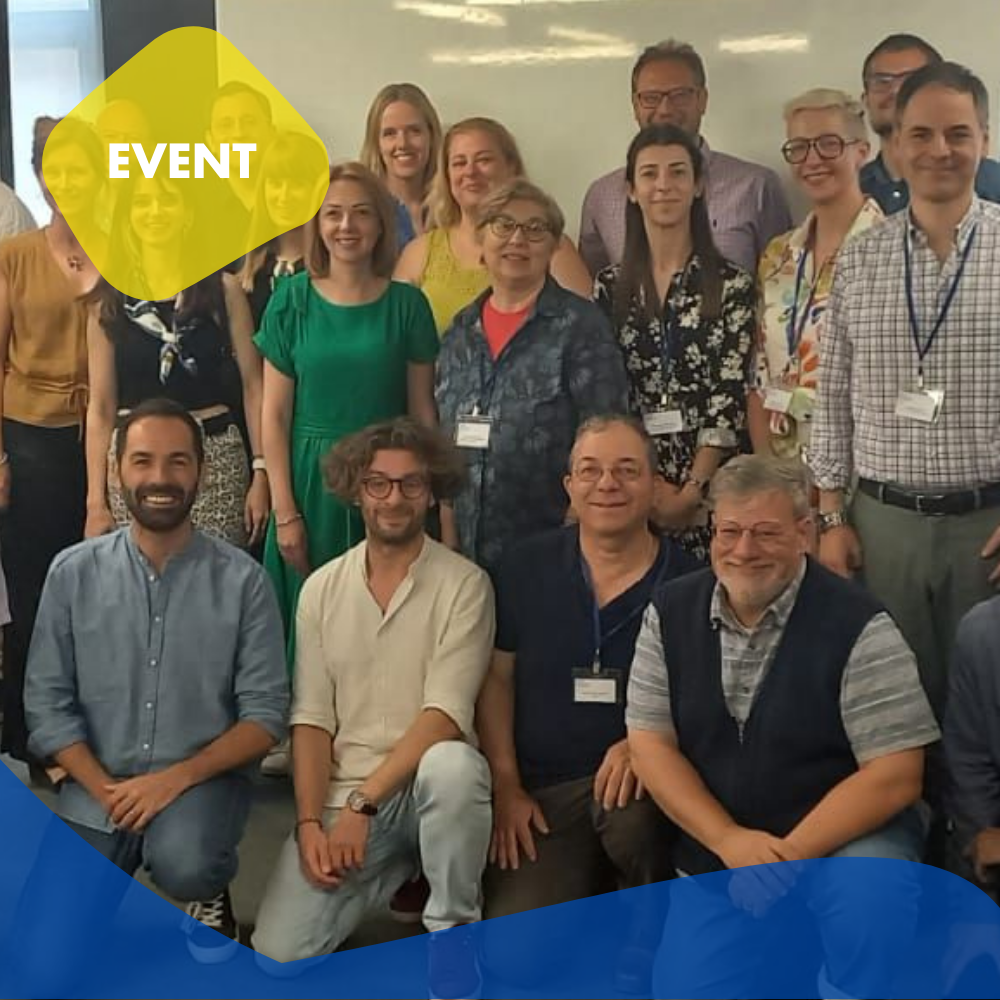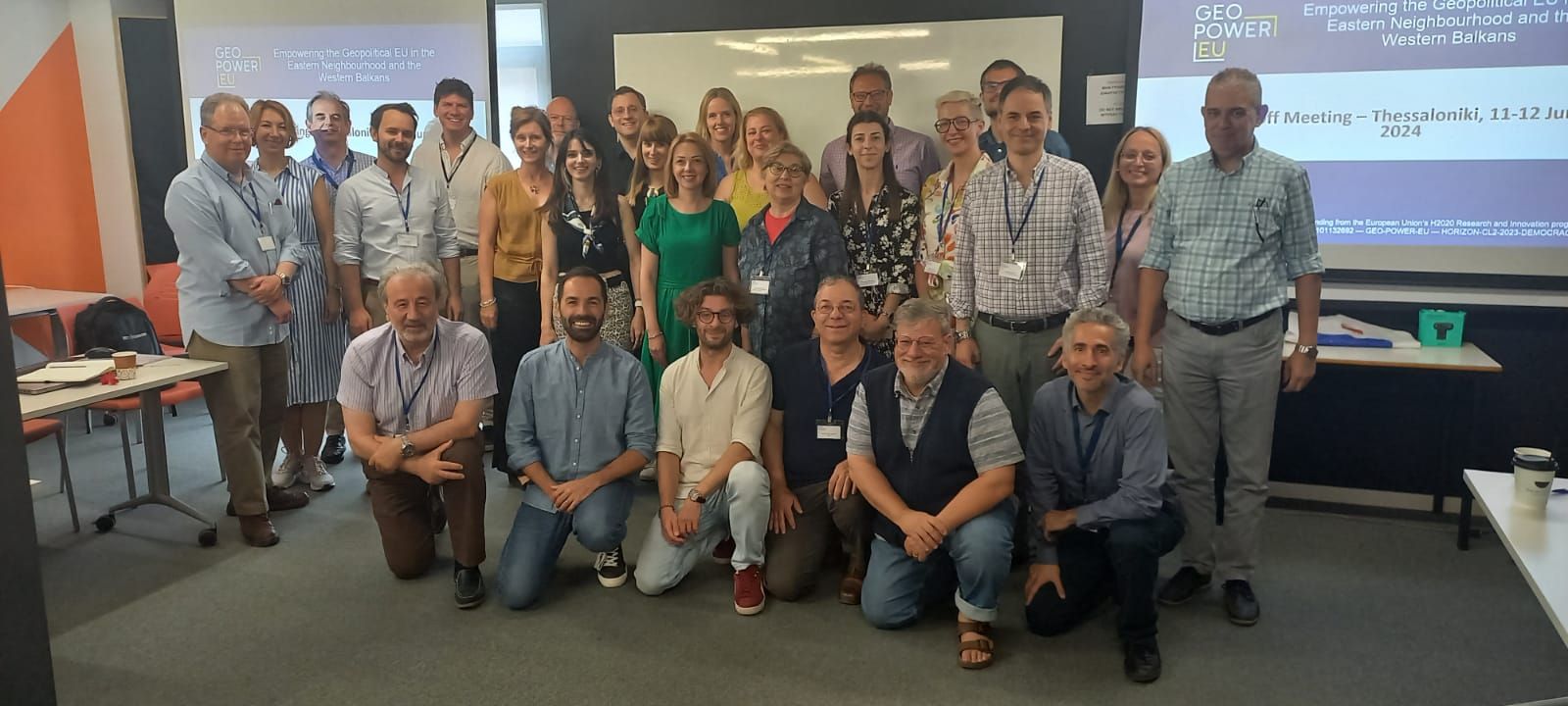GEO-POWER-EU Kicks Off in Thessaloniki
The GEO-POWER-EU project officially launched with its kick-off meeting on 11–12 June 2024, hosted at CITY College, University of York Europe Campus in Thessaloniki, Greece.
Over two productive days, twenty-five researchers representing 14 partner organizations gathered in a hybrid format—both in person and online—to align on the project’s vision, structure, and work packages. The event also featured contributions from researchers involved in sister projects, encouraging valuable cross-project dialogue and collaboration.
The meeting sparked dynamic discussions and the exchange of diverse perspectives, laying a solid foundation for innovative approaches to the project’s strategic goals. The consortium’s shared enthusiasm and expertise set a strong tone for the work ahead.
About GEO-POWER-EU
GEO-POWER-EU is a forward-looking initiative aimed at strengthening the European Union’s strategic posture in the face of growing geopolitical challenges, particularly in the Eastern Neighbourhood and the Western Balkans. The project focuses on reforming and innovating EU policy tools to ensure they are fit for a rapidly evolving global landscape.
Key objectives include:
-
Developing adaptive strategies for EU enlargement in response to geopolitical shifts
-
Reassessing and reforming the Eastern Partnership (EaP) to address the influence of global powers
-
Offering strategic foresight on emerging military threats and geopolitical competition
-
Creating a multidimensional strategy to enhance EU engagement with the Western Balkans and Eastern Partnership countries
Project Partners
GEO-POWER-EU brings together a diverse and accomplished consortium of academic and policy institutions from across Europe:
-
University of the Peloponnese (Project Coordinator) – Greece
-
Southeast European Research Center (SEERC) – Greece
-
European Neighbourhood Council (ENC) – Belgium
-
University of Bologna – Italy
-
The Vienna Institute for International Economic Studies (WIIW) – Austria
-
University of Rijeka / Academy of Applied Arts of the University of Rijeka – Croatia
-
Institute for Democracy “Societas Civilis” – North Macedonia
-
University of Belgrade – Serbia
-
VE Insight – Austria
-
Democratization Policy Council (DPC) – Germany
-
IDIS Viitorul – Moldova
-
Odesa Mechnikov National University – Ukraine
-
Georgian Foundation for Strategic and International Studies (GFSIS) – Georgia
-
Utrikespolitiska Institutet – Sweden


